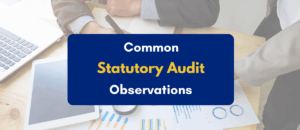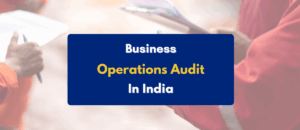Written By – PKC Desk, Edited By – Sambavi, Reviewed By – Balaji Prasath
What Is A Feasibility Study?
Investing in a business idea that has a chance of failing is always a nightmare. But how do investors or entrepreneurs for that matter, go about calculating this probability? – through studying business feasibility
They conduct all forms of analysis – be it market research for checking the demand their product or service meets, or a financial study that determines the balance between cost and payoff.
A feasibility study is the umbrella term for these crucial steps to analyze a startup idea or a new business project.For an exaggerated example, Joe has an idea of starting a gaming arcade in his town where most of the population are older than 60. With a feasibility study Joe can invest in other ideas which would have better payoff.
We recently helped an Ayurvedic product company raise $ 2.5 million. PKC’s Startup Consulting includes a detailed feasibility study on your business idea which will help you manage every phase of your business journey.
Steps Involving A Feasibility Study:
Let’s dwell a little more deeper into understanding why a feasibility study is important for a business idea.
1. Firstly, you get an idea whether it’s a go or no go – with a feasibility study you get enough data to support and reason your decision
2. It allows you to narrow your focus down into fewer alternatives. In the previous example’s case, Joe would now focus on researching demographics in other places which suit his arcade business idea.
3. When a feasibility study is conducted, you evaluate a wide range of parameters that tell you a lot more about your business idea which indirectly enhances the success rate.
For example, evaluating the budget or mapping financial, legal and staffing constraints for your business idea serve as vital parts of a feasibility study.
4. Failing is considered good in the business world but undertaking a business idea that is bound to hit the ground crashing is not a good experience. A feasibility study saves you from taking that one wrong step.
How Do You Actually Carry Out A Feasibility Study?
Step 1 : Analysis of the Business Idea
A feasibility study starts with identifying and outlining the business idea. Identifying the problem your business is trying to solve for customers. Is demand greater than supply for the product or service your business is trying to offer? Determining the Unique Selling Proposition etc. In this step, you identify whether at least theoretically this business will be able to meet the expenses and turn out to be profitable in the long run.
Step 2 : Estimating Incomes of the Business Idea
This works similar to reverse engineering stuff from aliens. You start out with a fixed income that you expect to make at the end of one business year. Then you calculate how much investment capital you need to bring/pool in to make that revenue possible.
Step 3 : Market Research
This is one of the most important parts of your feasibility study as it provides you with close to reality revenue projections. It considers factors like demographics, competitor analysis, market value, risk, what market share will you be able to sustain, options of expansion.
With Market Research, the foundations of feasibility have been established and you have an idea of starting off. But just approximations and market research are not enough to be sure if your idea can be successful.
Step 4 : Planning Operations and Resources
In this step, you include costs for operations and other unavoidable costs like equipment needed, staffing, real estate costs etc. This would open doors to making vital decisions –
like what alternative you would use to deliver your sandwiches or which hosting platform would be reliable for your online business etc.
Step 5 : Preparing Financial Statements
Yes. Feasibility study says you need to prepare a balance sheet before even you start your business to actually take form. This contains the sources of financing available for the business, any assets and their value etc. Liabilities would include leasing costs/purchase of land, building & equipment.
Step 6 : Review and Analysis
Doing a quick reality check is always useful. Since there are many estimations and uncertain numbers, it might not match with one another. For example, your income statement tells a completely different story about your business than your balance sheet. Answering a few questions like – Does it seem real? Do I need to make a contingency plan? – is vital before starting the business.
Step 7 : Making the Decision
All the aforementioned steps lead out to this final call. Some last few checks before making this decision are – whether the idea is worth the time, money and effort and if it is properly aligned with the company’s vision and mission.
We wish you success in bringing your business idea alive. Please feel free to get in touch with us for startup consulting, feasibility study that help you validate your product/business plan.

 Expert verified
Expert verified 


This is an awesome post for sharing business thoughts.Thank you.